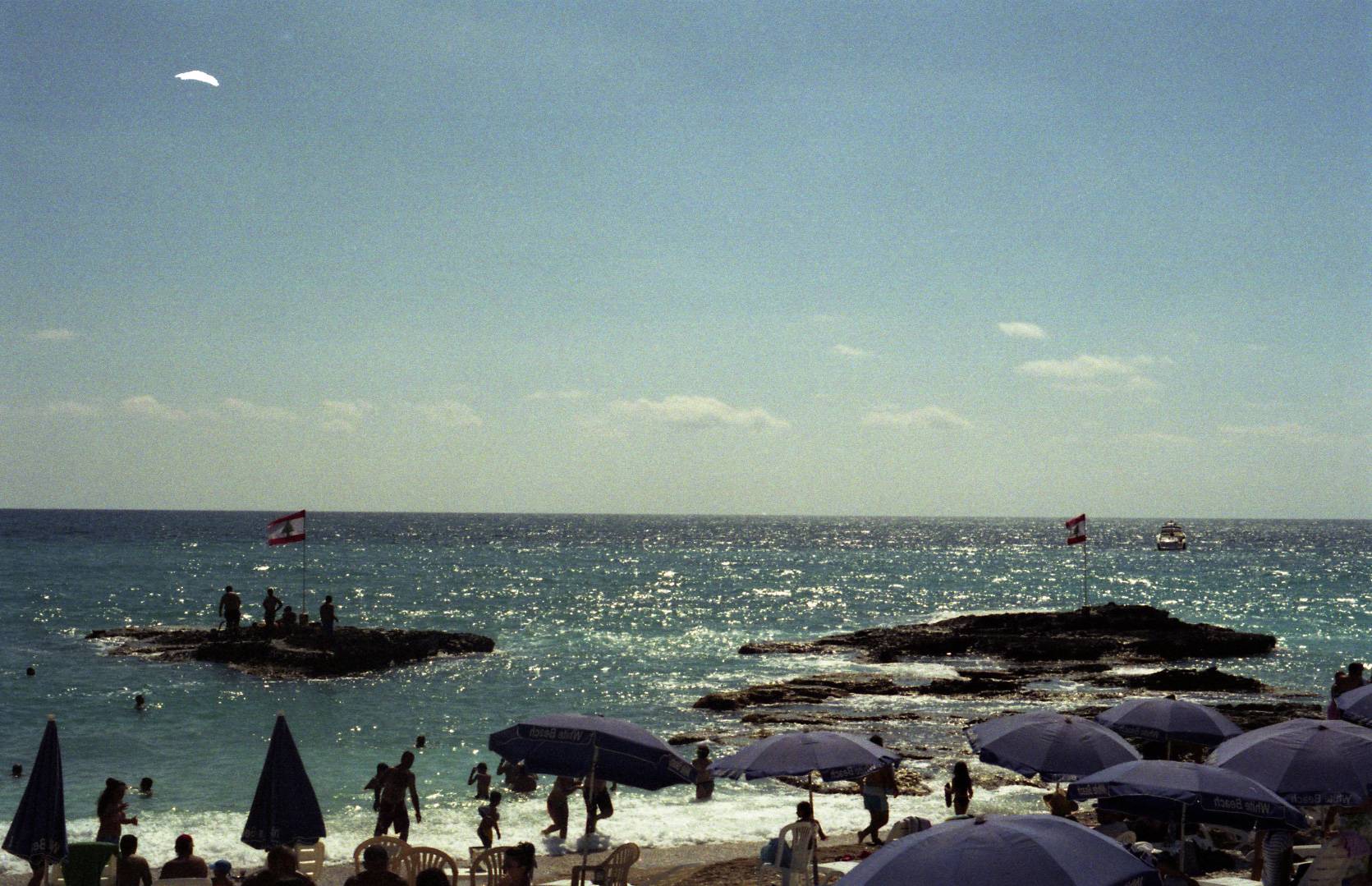A Refresher on Racism in Lebanon: Who Gets To Hang Out at the Pool?
Every summer, there is a wave of indignation at the fact that some beach resorts do not allow domestic workers (and in Lebanon, this translates to black or Asian women) onto their premises or into their pools. The weather cools down, and so does our heated outrage. Let’s force things back to the foreground.
Racism is a universal issue, with varying degrees of visibility throughout the world. One Texas community pool recently made headlines when a white police officer slammed a black fourteen-year-old girl to the ground and kneeled on her back, right after he had pointed his gun toward a group of black teenagers.
While it’s unclear whether or not the officer’s actions were racially motivated, the image of aggressive white police officers and a black community stirs up memories of the civil rights movement, but also issues of race, which are not exclusively an American problem.

Communal swimming spaces are a great site for discussion of race. In the states, many pools were historically segregated by color, for fear that black people were dirtier than white people. While Lebanon’s tropical nature and beach resort scene is the envy of many a country, just who gets to access these spaces?
In Lebanon, the term domestic worker is conflated with women from African and South Asian countries (places like Ethiopia, Bangladesh, Sri Lanka, and the Philippines, to name a few). It’s not only a class issue, but a racial one.
A few years ago, NOW Lebanon published an article featuring the policies of various beach resorts in Lebanon, finding that 22 of the 36 surveyed beach resorts had some kind of discriminatory policy towards allowing domestic workers access onto their premises, whether they were forbidden entirely from entering, allowed to enter but not swim, or restricted to swimming in the ocean but not pools (because they might bother the clientele by being in the same pool of water, of course).
Calling an updated list of resorts five years later yielded very different results. Twenty eight of the 35 resorts allegedly have no discriminatory practices in place towards domestic workers. Most resorts have changed their policies in the last few years and require that all visitors wear swimsuits in their pools, including domestic workers. More important than the numbers was the reaction of the managers or employees – a good handful of people were surprised at my questions, saying things like, “They are human, aren’t they?”
Then, there were the disappointments. There were a few places that seemed put off or confused by my questions, and one resort that was outright hostile, blaming their policy on Lebanon’s backward-minded clientele. Some employees said that domestic workers could not swim in their pools, but then referred me to managers who reassured me they could. One place hung up the phone, while another claimed that maids should be wearing uniforms that identify them as maids. That one was particularly confusing.
One of my more enlightening phone calls had me speaking with an employee who asked me what ethnicity the domestic worker in question was when I asked if he or she could swim in the pool. It’s clear that the closer a person is to having Caucasian features, the less likely it is that they will face issues trying to enter a resort or swim in pools without receiving the stink-eye.
I tried to pinpoint the root cause behind these policies, asking managers and employees if my black friend would be welcome to enter their resorts. “Ahla w sahla!” they would say, stressing that their policy was not one targeted at certain races.
“But how do you distinguish between a black friend and a domestic worker who is black? Or my Filipino friend and a domestic worker who has Asian features?” I asked.
This is where employees handed the phones to their managers, where managers asked me to call back, where things started to get a little fuzzy. One employee at a resort said that they had never faced this issue before, so they did not know what they would do in that situation. That’s a copout though. If you don’t know what you would do in such a situation, then your policy is racist.
What’s troubling is that these things are still in question, that employees of these resorts are still unsure whether or not certain people can share access to water with others, that there is even one place in Lebanon (there are more) that is still blaming their policies on the “backwards” beliefs of their core market. While policies have become more progressive on the surface, this doesn’t mean that there are no issues in practice.
Spoiler alert: if you uphold these policies, then you are even more to blame than your “backwards” clientele.
Here is the list in full:
Domestic workers can enter and swim in pool or beach
Sporting
Riviera
Les Creneaux
Coral
Golden Beach
Middle Beach
Edde Sands
Florida beach
Al Jisr
Ocap
Bourj Al Fidar
Bel Azur
Mocean BEach resort
Iris
La Medina
Watergate
Waves
Pangea
Janna Sur Mer
Orchid
Jonas
Sand’s Rock
Utopia
Ocean Blue
Cyan
Costa Brava
Four Stars
Lazy B
Domestic workers can enter, but are only allowed to swim in beach
Villamar
Jiyeh Marina Resort
Domestic workers are not allowed at all
C Flow
[Photo via Flickr]